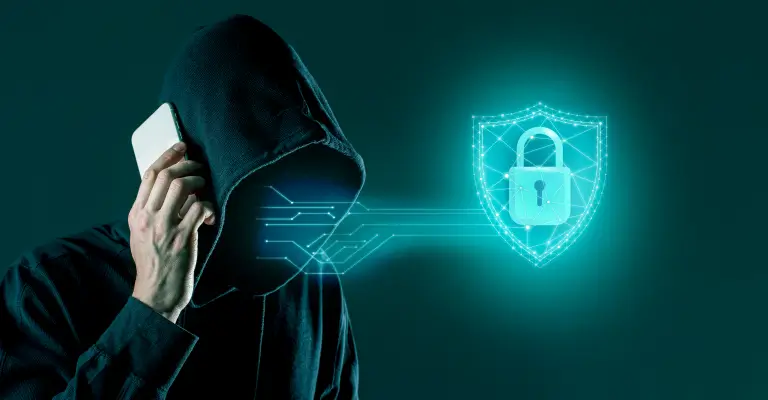Verifiable credentials (VCs) are now becoming an essential tool in cybersecurity. They offer secure and privacy-preserving methods for digital identity verification. So, it goes without mentioning that these cryptographically signed credentials are totally transforming how businesses and people manage sensitive information online.
Even many entrepreneurs believe that digital identities will be the backbone of the digital economy in the future. From healthcare, education, IT, and finance to hiring processes, verifiable credentials can be used in multiple industries for cybersecurity.
Here, we will discuss verifiable credentials in cybersecurity and their importance, benefits, examples, and use cases.
What Are Verifiable Credentials?
So, what exactly are verifiable credentials? In simple words, they are digital versions of documents, certificates, or qualifications that cannot be tampered with and can be easily verified to confirm their authenticity.
They can show information found in physical credentials, like passports or licenses, as well as new things that don’t have a physical equivalent, such as bank account ownership.
Verifiable credentials have three main parts:
- Metadata (The core info): This describes the credential itself, including who issued it, when it was issued when it expires, and what format it follows.
- Claims (Content of credentials): This is the main content of the credential, containing information about the person or entity it belongs to.
- Proofs (Tech info): This cryptographic information allows the credential to be verified as genuine.
The verifiable credential system works on a triangle of trust:
- The issuer (who creates the credential) trusts the holder and the technology
- The holder (who holds the credential) trusts the verifier
- The verifier trusts the issuer
Hence, verifiable credentials are a decentralized model that gives individuals total control over their personal information and provides better privacy and secure sharing than traditional systems.
Check Detailed Blog: Verifiable Credentials: What Are They, How They Work, Their Importance, and Applications
Why Verifiable Credentials Are Needed for Cybersecurity
With the increasing cases of fraud and identity theft, the need for verifiable credentials is really urgent. The data shows:
- Over 80% of data breaches and hacking are due to stolen or weak passwords
- Fraud losses top $10 billion in 2023 in the USA
- The global identity verification market is expected to touch nearly $40 billion by 2032
These stats show the urgent need for more secure and reliable methods of digital identity verification.
The Benefits of VCs in Cybersecurity
Verifiable credentials cannot be faked or hacked, but they are very beneficial for cybersecurity. Here are some of the main cybersecurity benefits of VCs:
Prevents Identity Theft
VCs are created cryptographically to make sure your digital ID can’t be stolen or used by someone else. This makes it much harder for hackers to pretend to be you online.
Precise Access Control
With VCs, websites and apps can give you access based on specific verified info about you rather than an all-or-nothing login. So, you only get access to exactly what you need.
Protects Your Data
Companies don’t have to store as much sensitive info about you when using VCs. This means hackers have less valuable data to steal if they break in.
Secure Sharing Between Organizations
With verifiable credentials, organizations can securely share and verify identity data with each other when needed. This helps smoother interactions while still protecting privacy.
How Verifiable Credentials Are Important in Cybersecurity
As discussed above, VCs are secure digital documents that can be verified by anyone to check their authenticity. So, they can play an important role in cybersecurity.
Secure Digital Identity Verification
One of the best ways verifiable credentials can be used in cybersecurity is for secure digital identity verification. With VCs, businesses can verify the authenticity of a user’s claimed documents without relying on manual background checks or trusting the physical document.
For example, a holder of a digital certificate could provide a VC digitally signed by their university to prove his educational qualifications at a company.
Access Control and Authorization
VCs can also be used to enable access control and authorization based on verified attributes. Instead of using only usernames and passwords, systems can make access decisions based on the specific claims within a user’s VCs.
This will further enable much more secure or context-aware access policies. For instance, to have access to sensitive patient records, a healthcare provider would require a VC proving these medical credentials and the affiliation of the user in question.
Fewer Data Breaches and Fraud
By using VCs, businesses can minimize the amount of sensitive data they need to collect and store. This reduces the risk and impact of data breaches. Since VCs are cryptographically signed by the issuer, they can be verified without contacting the issuer.
So, relying on trusted parties doesn’t need to maintain large databases of user information. This helps reduce the risk of large-scale identity theft and fraud that can occur when centralized identity databases are hacked.
Secure Multi-Party Interactions
VCs make it easier for multiple parties to have secure and trusted interactions, even when they don’t have direct trust relationships. For example, a supply chain could use VCs to establish the origin of goods as they move between different companies, without each company needing to directly verify the others. This enables more efficient and secure collaboration across organizational boundaries.
Verifiable Credentials Examples in Cybersecurity
Here are a few real-world examples/applications that show the importance of verifiable credentials in cybersecurity:
- The Government of British Columbia is using VCs to issue digital licenses and permits. This reduces fraud and enables secure online services for citizens.
- The International Air Transport Association (IATA) has used verifiable credentials to securely store and share COVID-19 test results and vaccination records. This has eased safer international travel and instant verification at Airports.
Final Words
Thus, verifiable credentials’ role in cybersecurity is imperative, and their importance is likely to increase in the future. You can check verifiable credentials use cases and check how they can be helpful in your industry.
Find out how EveryCRED can help your business use the power of verifiable credentials for secure digital identity management. Visit our website to learn more and request a demo today.

 20th August, 2024
20th August, 2024 



